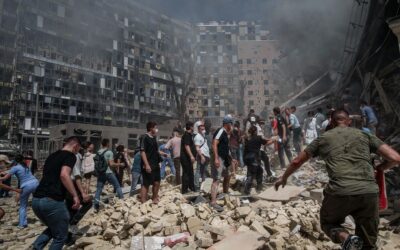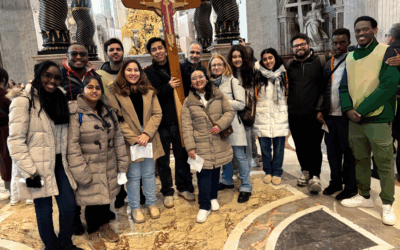On the eve of Pentecost 1998 John Paul II gathered ecclesial movements and new communities to St. Peter’s Square. The Focolare Movement, represented by its founder Chiara Lubich, was amongst the participants. On that occasion Pope Wojtyla publicly recognised the role of these new realities within the Church; it was the first acknowledgment of its kind. That day Chiara committed herself before the Pope to help foster relationships of communion between movements.
Audio http://212.77.9.15/audio/ra/00259382.RM
He was truly the guardian of ecclesial movements because he recognised that the Spirit generated them for the whole Church. On that occasion, however, he also asked movements to progress from their initial stage of childhood in order to produce mature fruits of communion and commitment.
Pope Wojtyla closely accompanied the Focolare Movement throughout his pontificate…
We very often felt a particular love from him: in his glances, his greetings and also in his concrete gestures. It was his idea, for example, to give us use of the former building for General Audiences in Castel Gandolfo. It is now our Mariapolis Centre, used continuously for meetings all year round. He also visited the Movement’s International Centre where he underlined radical love as a characteristic of the Focolare Movement.
John Paul II had a personal and very deep relationship with Chiara Lubich: what was the basis for this spiritual harmony?
I believe that it was the spirituality of communion that he perceived in Chiara’s charism and witnessed in the life of the Movement. He longed for such communion to be present in the whole Church. I believe that this relationship was also due to the openness towards all men that he found in Chiara and in the whole Focolare Movement; an openness that didn’t know differences between social classes, religions, nationalities and that corresponded to his view of humanity, to his faith in the value of each man above all else.
Maria Voce, from your personal point of view, who was John Paul II and what do you think he wants to remind the Church and the whole of humanity of today?
He was a great figure in every sense and in all aspects. That which seems particularly important to me was this recognition that every man or woman is a Son or Daughter of God. This upmost dignity at a universal level lead him to favour relationships with everyone giving an impetus to all form of dialogue that the Church engages in. I was in Istanbul when he visited Patriarch Demetrius in 1979 and I remember the joy he felt in meeting this ecumenical patriarch.
I think his figure can give the Church and the world hope and trust in the action of the Holy Spirit who, in the darkest moments, takes the Church’s destiny under His wing. This was something he said and witnessed above all to the numerous young people who gathered around him because, with him, they experienced a young Church. He demonstrated this young Church, capable of giving answers to modern day man, to the whole world.
For the full interview in Italian- including the interviews with Kiko Argüello, Marco Impagliazzo, Maria Voce e Andrea Olivero- see the article : “Papa Wojtyla: le testimonianze di Kiko Argüello, Marco Impagliazzo, Maria Voce e Andrea Olivero” at:
http://www.oecumene.radiovaticana.org/it1/Articolo.asp?c=483009




0 Comments